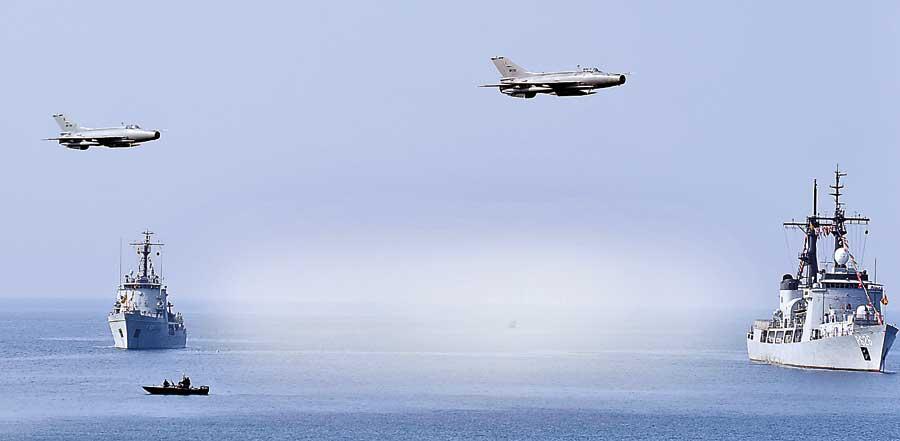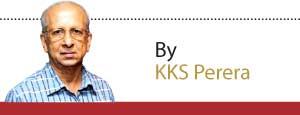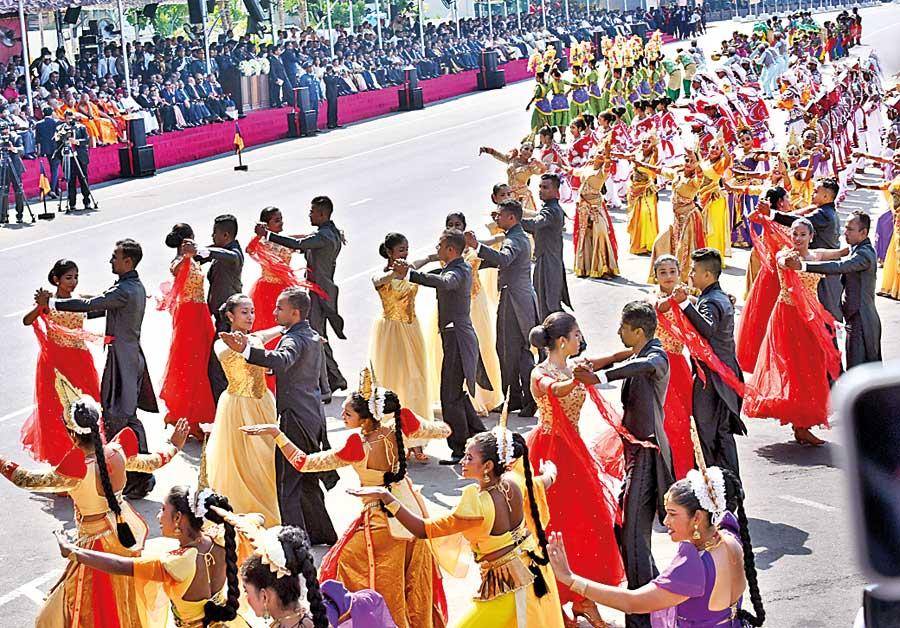05 Feb 2024 - {{hitsCtrl.values.hits}}
True freedom cannot be bestowed by an external entity; it resides within you. Unleash it from within yourself

The 76th ‘February 4th’ has passed, marked by four days of aerobatics, consuming considerable aviation fuel and time.
Pix by Kushan Pathiraja
The 76th ‘February 4th’ has passed, marked by four days of aerobatics, consuming considerable aviation fuel and time. This prompts questions about resource usage during such events. The primary question persists: why, after 76 years of independence, hasn’t this celebration translated into genuine freedom? To attain complete freedom for Sri Lankans, there is a need to fully implement the 13th Amendment or consider extending beyond its provisions.
The primary question persists: why, after 76 years of independence, hasn’t this celebration translated into genuine freedom? To attain complete freedom for Sri Lankans, there is a need to fully implement the 13th Amendment or consider extending beyond its provisions.
Despite the festivities, one-third of our child population is starving, revealing a stark contrast between proclaimed freedom and harsh realities. The disconnect raises questions about national priorities and the need to re-evaluate policies to ensure tangible improvements for all citizens. Politicians often extol the virtues of democracy, presenting it as a catalyst for progress, yet paradoxically, nations with restricted political freedom seem to outpace them in certain aspects. The conventional world order, a result of “Peace of Westphalia” signed in 1648, marked the end of the thirty and eighty years wars, establishing the foundation for modern international relations.
[The 30 Years War (1618-1648) was a conflict between feuding Catholic and Protestant estates within the Holy Roman Empire. Simultaneously, the 80-year war (1568-1648) was fought over the Netherlands’ quest for independence from Spain.]
Despite the festivities, one-third of our child population is starving, revealing a stark contrast between proclaimed freedom and harsh realities. The disconnect raises questions about national priorities and the need to re-evaluate policies to ensure tangible improvements for all citizens
This historic treaty introduced key principles such as state sovereignty, diplomatic mediation, and the basis for religious toleration from a political standpoint. It laid the groundwork for international laws and influenced the formation of entities like the European Union and the United Nations. The Westphalian system retains its influence on global politics, with current international treaties and conventions. Meanwhile, emerging powers in the Eurasian region, like Russia, China, India, Indonesia and Vietnam are undergoing significant development, challenging the traditional dominance of Western nations. In contrast, as a nation gaining independence in 1948 precisely 300 years after the Westphalian Peace, and initially boasting healthy foreign reserves, we unfortunately witnessed economic decay over the past 76 years. This decline reached its peak with a bankrupt Treasury, leading to the emergence of a politically rejected individual stepping in, to take charge and rescue the nation.
In certain parts of the world, the freedom of self-expression, speech, and thought thrives, while in others, it remains elusive. Individuals conditioned by their backgrounds often rebel, expressing their discontent through various, sometimes immature reactions termed as “freedom.” This rebellion manifests in different ways.
When people get fed up with politics, they sometimes just step back and avoid it. Some folks, when facing economic issues, try creating small groups with their own rules to be more independent, but these groups often break apart over time. In terms of religion, some people rebel against established beliefs by joining different religious groups, following leaders, or rejecting organized religion altogether. Are these actions just outward attempts to find freedom? These different responses show how personal expression and societal rules interact in the pursuit of freedom. Freedom is super important in life. People all over the world have fought for it in politics. Religions often say they offer freedom, but usually, they mean it in the afterlife. In countries with capitalism, there’s some personal freedom, but historically, communist nations have not been big on it.
Amidst global chaos, recognizing the vital need for human unity beyond divisions like nationality and religion is crucial for survival. Relying on politics or legislation alone won’t bring about this essential transformation
Throughout history, people have fought for freedom, not only in politics but also in the realm of religion. The Inquisition serves as a stark example, using excommunication, torture and banishment to suppress the pursuit of freedom. Wars, too, have been waged over freedom, forming a recurring pattern in our shared history.
Trying to be free from something often means carrying on with modified versions of our past, not really breaking free. True freedom isn’t about having a specific direction or making choices. When there’s a clear direction, it brings division, choices and conflicts. True freedom is found when the mind and heart are free from these limitations, existing without being divided or conflicted.
There’s no special type of freedom called “individual freedom”; it’s just freedom. When we say “individual,” it means something that can’t be split, not something against the group. But we’ve made up this idea of individuality with its own traits, which come from how we’ve been taught and influenced. We often compare this individuality with being part of a group. Our culture, money stuff and how we live all play a role in shaping how our minds work. True freedom is beyond these influences, outside of our usual way of thinking. The responsibility that comes with being free from these influences is different from what we usually think of as freedom.
“Freedom lies in being bold” – Robert Frost
Amidst global chaos, recognizing the vital need for human unity beyond divisions like nationality and religion is crucial for survival. Relying on politics or legislation alone won’t bring about this essential transformation. In a world filled with conflicts and violence driven by profit and ideologies, individuals must question their role and the purpose of their actions in the face of overwhelming circumstances.
It’s wise to steer clear of religious organizations, sects or narrow political ideologies. Aligning with them often stirs up divisions, leading to conflicts and wars. Beyond ethnic or religious labels, we’re all fundamentally human, connected by our shared humanity. By distancing ourselves from rigid beliefs, nationalistic feelings and sectarianism, we open up to a broader understanding of humanity’s search for truth. This truth, relevant in our modern times, holds a timeless and universal significance
It’s wise to steer clear of religious organizations, sects or narrow political ideologies. Aligning with them often stirs up divisions, leading to conflicts and wars. Beyond ethnic or religious labels, we’re all fundamentally human, connected by our shared humanity. By distancing ourselves from rigid beliefs, nationalistic feelings and sectarianism, we open up to a broader understanding of humanity’s search for truth. This truth, relevant in our modern times, holds a timeless and universal significance.
“To be free is not just to cast off one’s chains, but to live in a way that respects and enhances the freedom of others.” – Nelson Mandela
Freedom is found in your heart; allow it to be free – it creates happiness. Freedom is inside of you. You just need to unlock it. The road to freedom is paved with courage and determination. Freedom opens the door to happiness, liberty and independence. Your mind is always free. No one can ever take that away, and you have the freedom to do what is right. That is the true liberty of life. The most important freedom is the freedom found in your soul, in your mind and heart; it should not come at the cost of another’s. Albert Einstein famously said, “For everything that is really great and inspiring is created by the individual who can labour in freedom.”
Can the experience of independence be found outside oneself, or does it reside solely within the individual?
The writer can be reached on [email protected]

27 Jul 2024 32 minute ago
27 Jul 2024 44 minute ago
27 Jul 2024 53 minute ago
27 Jul 2024 1 hours ago
27 Jul 2024 4 hours ago